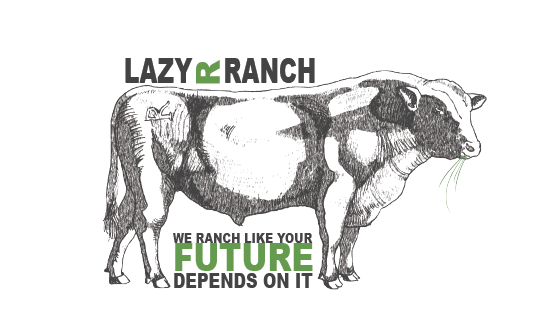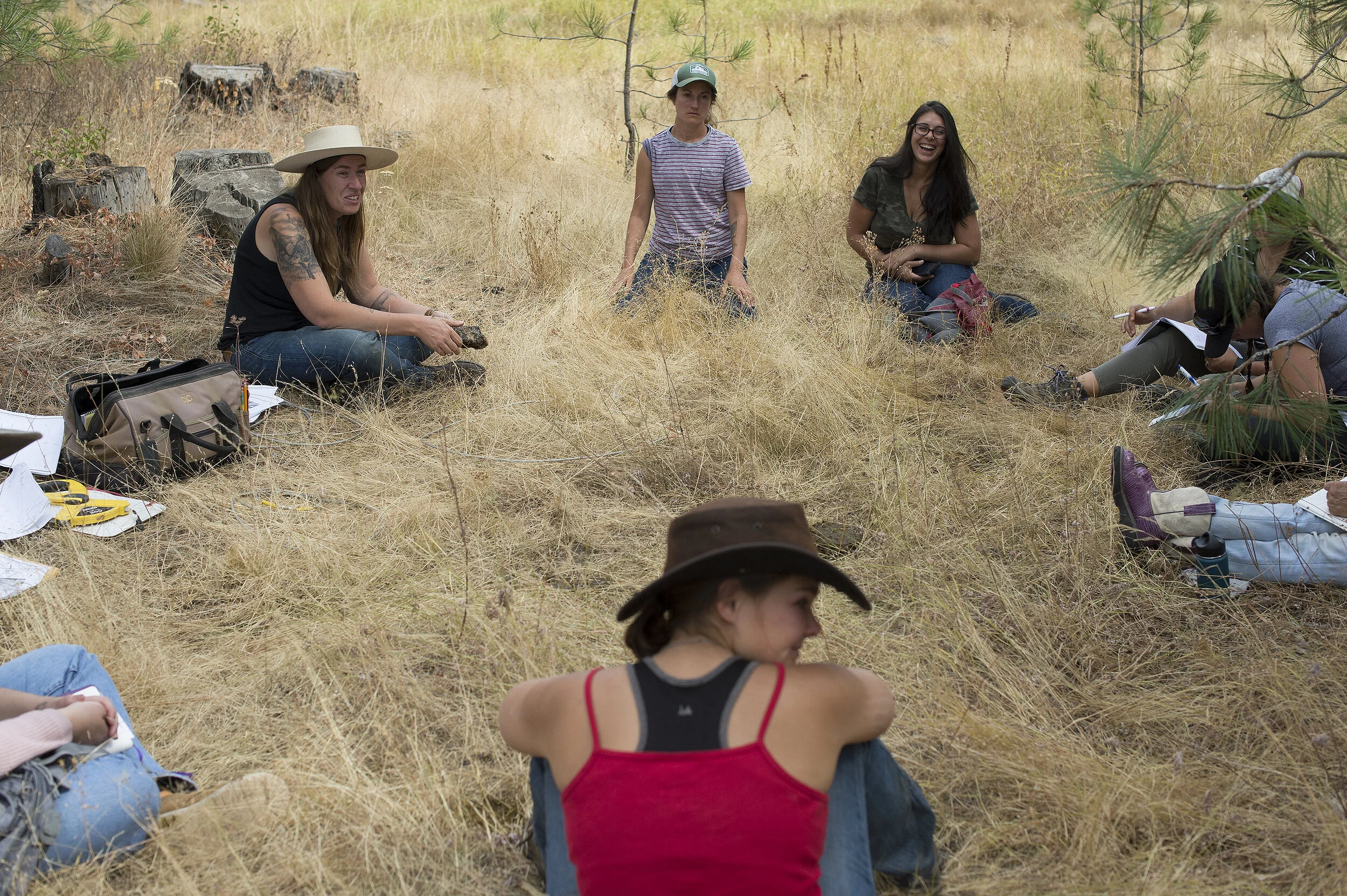We acknowledge that ecological restoration and social justice are inexorably linked. As we work to mend the lands we manage, we must also work to confront the historical legacies of colonialism that led to their degradation.
Here is what the Lazy R Ranch has committed to so far:
The Lazy R Ranch is a welcoming place for BIPOC. We can provide rustic accommodations for a place of respite for people of color. Contact us for details.
We will collaborate with BIPOC-led organizations to advertise and recruit for our existing programming, and to design programming to specifically support and encourage BIPOC connecting to land based practices and regenerative agriculture. We will materially support organizations already doing this work.
We have established a relationship with a funder to ensure that we are able to eliminate financial barriers for women of color who want to participate in New Cowgirl Camp and other future programs.
We acknowledge that the ranch exists on Spokane ancestral land and the violent history that led to us “owning” it. We will materially support preservation of the culture of the Spokane tribe and the Salish language. Through the Tribal Liaison office at Eastern Washington University, we have initiated a partnership to engage with the Spokane tribe and other tribes who have historically sustained themselves on the Lazy R to understand what meaningful reparations would look like.
We will push the white centered agriculture organizations we are affiliated with to examine and confront the history of white supremacy and colonialism and its continued impacts on our food system. We have already begun many of these conversations.
We will document our process and work to develop a tool kit for other landowners to follow in the future.
We will remain open to feedback, responsive to suggestions, and lead with open hearts.
Below is an essay I wrote. I hope you will read it in the spirit of love and honesty with which it was written. —Beth
Most of my life, I never thought about my whiteness. I never needed to.
I had the luxury of living in a world where I fit in as the default. When I made the somewhat contrary decision to enter the world of ranching as a young woman, I did face discrimination. But because I had a lifetime of study in the cultural patterns of Old White Ranchers, I understood how to navigate them. Usually I just had to drop the term “fourth generation,” and do something clever like add numbers together quickly in my head or correctly tie in a stack of square bales on a flatbed. I might not have held the instant respect that a man in my position would have commanded, but no one ever questioned my place at the table. Frankly, my whiteness was a shield that allowed me to bullshit my way through the world until I actually learned enough to know what I was doing.
Ranching is rife with systemic racism. We farm on land that is only available to us because the United States government waged (continues to wage) a ruthless and brutal genocide on indigenous people and gave their land away to white settlers. When the first ranchers established themselves in this area, Washington territory didn’t grant Black people citizenship and opted to defend the rights of slave owners. The fact that my poor white great grandparents could even rent farmland, or that my grandpa could access the capital to buy it, speaks to the legacy of our privilege. These opportunities compound over generations so that I was born set to inherit land and cattle and cash and as long as I was careful, I could eke out a decent enough living on the Lazy R.
But let’s face it. We also have big R Racism. I’ve heard fellow ranchers make every racist and homophobic and sexist joke you can imagine. I’m guilty too. I’ve made insensitive comments, been called out and proceeded to write a person of color’s feelings off as “not being able to take a joke.” I’ve held my tongue and prioritized my own comfort over saying what was in my heart. I’ve shied away from “getting too political." It’s time to make a change. I am done having any complicity in a system I don’t believe in. The future of ranching I envision is so much more vital and vibrant than anything we have seen before. This is just the beginning.
We must acknowledge that racial justice cannot be separated from regenerative agriculture and that environmental regeneration in the context of extractive social systems is an abject failure. Diversity is key to resiliency in any system and Black, Indigenous and people of color, and people of all sexual orientations and genders are vital to the future of agriculture.
According to the USDA, the average age of all U.S. farm producers in 2017 was 57.5 years, continuing a long-term trend of aging in the U.S. producer population. 40% of farmers are 65 and over. That means nearly half the farms in the United States will change possession in the next 20 years. Realistically, how many are being passed on to the next generation? Who will our next generation of farmers be? This graph shows the racial disparity between white people and BIPOC in agriculture compared to the general population of the United States.
The very best of cowboy culture has come from fully embracing and welcoming diversity, innovating and adapting over time, and its history spans the globe. One in four of the first cowboys on the frontier was Black. The vaqueros were mestizos of mixed indigenous and European ancestry refining the art of Spanish herdsmanship, which can trace its roots back to Arabic horsemanship. The vaquero became the buckaroo as this horse culture moved north into the Great Basin. The paniolos of Hawai’i come from a mix of vaquero and Native Hawaiian culture.
But there is also a deep history of violence that cannot be disconnected from colonization of the United States. I encourage you to examine the history of the indigenous people of your area. Here, the Lazy R Ranch was once part of historical tribal homeland of the Spokane Tribe, and was also utilized by the Coeur d’Alene, Palouse, and other tribes. Before European settlers ever arrived here, smallpox had already decimated the native population. As more and more white American settlers encroached on the Spokane homeland in the mid 19th century, conflict began to break out. In the first battle of the Couer d’Alene War of 1858, the allied forces of the Skitswish, Spokane, and Palouse defeated the United States Army. The Army sent reinforcements and won the next two battles.
After the battle of Four Lakes, which took place just a few miles from the ranch, the Army hung seventeen native leaders, who rode into camp for peace talks. The men were murdered along a stream I grew up calling “Hangman Creek.” To prevent further warmaking, the Army seized 800 horses from the tribes and slaughtered them. Colts were killed with blows to the head and the army fired volleys into makeshift corrals to save the time of shooting animals one by one. Colonel George Wright wrote, “The chastisement which these Indians have received has been severe but well merited and absolutely necessary to impress them with our power. … A blow has been struck which they will never forget.”
By the end of that year, the war was over and nearly all native people were removed from the greater Spokane area to reservations. Children were sent to boarding schools where their culture and language were beaten out of them. 60 years later, when my great-grandfather arrived on the scene, the Lazy R Ranch appeared free and clear to a down-on-his-luck but enterprising young white man and his family.
And when white settlers and their descendants were planting the seeds of generational wealth, Black people were enslaved, then terrorized by Jim Crow, persecuted and discriminated against even as they fled Northward. As Black folks sought to gain autonomy and build wealth, their communities were continuously met with violence and terror, such as the bombing of Tulsa, Oklahoma. Even in the “color blind” era I was raised in in the mid 90’s, discrimination has continued to haunt Black, Indigenous and people of color, manifesting in predatory lending, police violence and mass incarceration in the “war on drugs.” 100 years ago, 14% of farms in the U.S. were owned by Black farmers. Today it is less than 2%.
Black Farmers settled a class action discrimination suit against the USDA in 1999 for over 2 billion dollars, the largest settlement in U.S. History. Still, it did little to make up the gap for the estimated $4.6 trillion in land that was lost to Black farmers. We all know how much of agriculture relies on immigrant Latinx labor, yet how many of these workers ever have an opportunity to rise to the level of ownership? Until we acknowledge the series of decisions and the context in which they were made that led farm and ranch ownership to be overwhelmingly white, we can’t begin to correct these historical wrongs.
None of us asked to be born into a world so senselessly divided, but we can’t fix the problems until we truly understand them. I share this history not to illicit guilt (though that emotion certainly comes up for me), but to tell a more full truth of the world we are living in. One that represents not just the perspective of “self made” white ranchers like my ancestors, but also the realities of what the ancestors of BIPOC endured. Denying this past robs us of the opportunity to truly learn from it. We all come into a world shaped by decisions of those who came before us. And we all make decisions to shape the world that comes after.
We have a tremendous opportunity to diversify and increase the resilience of our farming and ranching community. The change in ownership of farmland in the coming decades is an opportunity to help transfer resources and wealth to people of color who have been historically denied access to capital or land in this country, and at the same time bring a tremendous diversity of skill sets, experience, and creativity into rural communities. My hometown of Cheney, WA was once a bustling rail town. Our downtown area now boasts an 80% vacancy rate. We could certainly use a dose of innovation.
We also need to look inside ourselves and see how these actions and structures play out in our own lives. We need to examine where we hold biased beliefs and harmful behaviors. How can we actively increase our consciousness of being, our own awareness? How can we acknowledge the grief of understanding the harm inherent in our current system, and at the same time not let the pain stop us from doing the good work of making a more just world? We must have grace and personal resilience when we are corrected for our mistakes. Who among us has not had moment when we snapped at our child or spouse after a long hard day of pushing yourself beyond your limits. And our brothers and sisters of color have had a hard few centuries. We need to listen and commit to doing better. We need to take responsibility for our own learning and unlearning in community. We must not let the fear of not saying the perfect thing be the enemy of saying the right thing. We need to be willing to try, mess up and dust ourselves off and try again. And lucky for us, this is something cowgirls are experts at.


